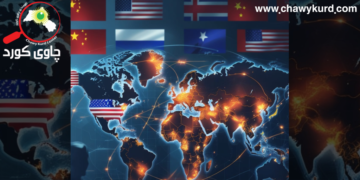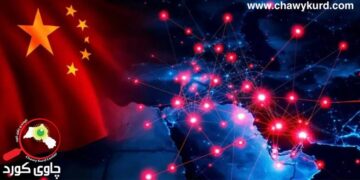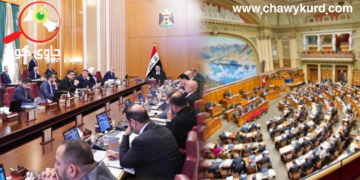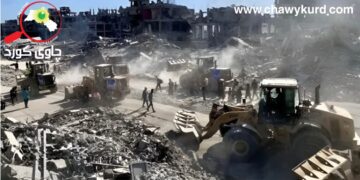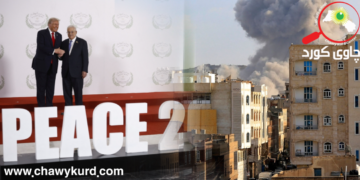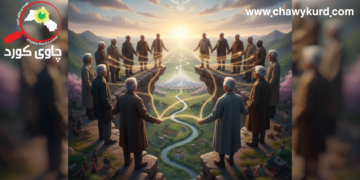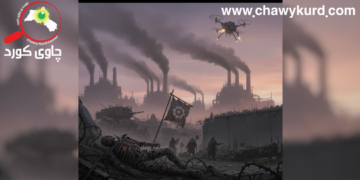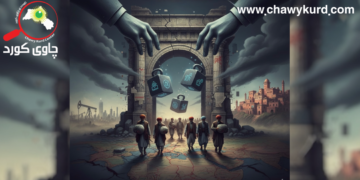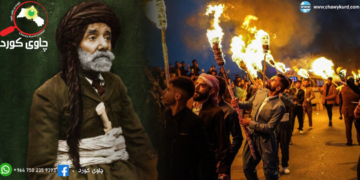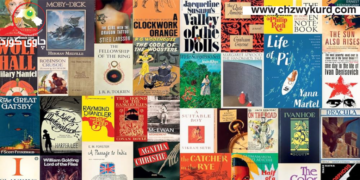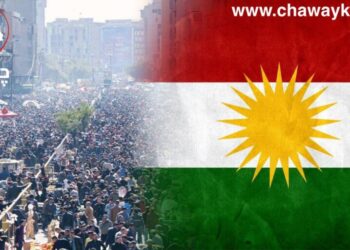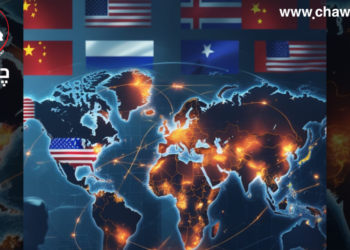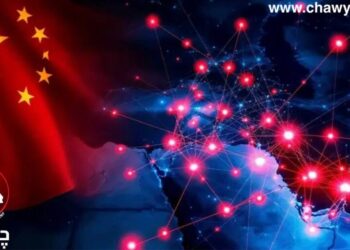The war in Ukraine allowed Muscovy to turn its attention to Europe. In 1654, the Cossacks signed an agreement with representatives of the tsar. The Muscovite armies invaded Poland-Lithuania from the east; soon after, Sweden invaded from the north, setting off the crisis that Polish history remembers as “the Deluge.” Peace was eventually made between Poland-Lithuania and Muscovy, in 1667, and Ukraine was divided more or less down the middle, along the Dnipro. After a thousand years of existence, Kyiv was politically connected to Moscow for the first time.
The Cossacks were something like an early national movement. The problem was that their struggle against one colonial power enabled another. In 1721, Muscovy was renamed the Russian Empire, in reference to old Rus. Poland-Lithuania never really recovered from the Deluge, and was partitioned out of existence between 1772 and 1795. Russia thereby claimed the rest of Ukraine—everything but a western district known as Galicia, which went to the Habsburgs. Around the same time, in 1775, the Cossacks lost their status. They did not gain the political rights they had wanted, nor did the peasants who supported them gain control of the black earth. Polish landowners remained in Ukraine, even as state power became Russian.
Whereas Putin’s story of Ukraine is about destiny, the Ukrainian recollection of the Cossacks is about unfulfilled aspirations. The country’s national anthem, written in 1862, speaks of a young people upon whom fate has yet to smile, but who will one day prove worthy of the “Cossack nation.”
The nineteenth century was the age of national revivals. When the Ukrainian movement began in imperial Russian Kharkov—todayKharkiv, and largely in ruins—the focus was on the Cossack legacy. The next move was to locate history in the people, as an account of continuous culture. At first, such efforts did not seem threatening to imperial rule. But, after the Russian defeat in the Crimean War, in 1856, and the insult of thePolish uprisingof 1863 and 1864, Ukrainian culture was declared not to exist. It was often deemed an invention of Polish élites—an idea that Putin endorsed in his essay on “historical unity.” Leading Ukrainian thinkers emigrated to Galicia, where they could speak freely.
The First World War brought the principle of self-determination, which promised a release from imperial rule. In practice, it was often used to rescue old empires, or to build new ones. A Ukrainian National Republic was established in 1917, as the Russian Empire collapsed into revolution. In 1918, in return for a promise of foodstuffs, the country was recognized byAustria and Germany. Woodrow Wilson championed self-determination, but his victorious entente ignored Ukraine, recognizing Polish claims instead. Vladimir Lenin invoked the principle as well, though he meant only that the exploitation of national questions could advance class revolution. Ukraine soon found itself at the center of the Russian civil war, in which the Red Army, led by the Bolsheviks, and the White Army, fighting for the defunct empire, both denied Ukraine’s right to sovereignty. In this dreadful conflict, which followed four years of war, millions of people died, among them tens of thousands of Jews.
Though the Red Army ultimately prevailed, Bolshevik leaders knew that the Ukrainian question had to be addressed. Putin claims that the Bolsheviks created Ukraine, but the truth is close to the opposite. The Bolsheviks destroyed the Ukrainian National Republic. Aware that Ukrainian identity was real and widespread, they designed their new state to account for it. It was largely thanks to Ukraine that the Soviet Union took the form it did, as a federation of units with national names.
The failure of self-determination in Ukraine was hardly unique. Almost all of the new states created after the First World War were destroyed, within about two decades, by Nazi Germany, the Soviet Union, or both. In the political imaginations of both regimes, Ukraine was the territory whose possession would allow them to break the postwar order, and to transform the world in their own image. As in the sixteenth century, it was as if all the forces of world history were concentrated on a single country.
Stalin spoke of an internal colonization, in which peasants would be exploited so that the Soviet economy could imitate—and then overtake—capitalism. His policy of collective agriculture, in which land was seized from farmers, was particularly unwelcome in Ukraine, where the revolution had finally got rid of the (still largely Polish) landholders. Yet the black earth of Ukraine was central to Stalin’s plans, and he moved to subdue it. In 1932 and 1933, he enforced a series of policies that led to around four million people dying of hunger or related disease. Soviet propaganda blamed the Ukrainians, claiming that they were killing themselves to discredit Soviet rule—a tactic echoed, today, by Putin. Europeans who tried to organize famine relief were dismissed as Nazis.
The actual Nazis saw Stalin’s famine as a sign that Ukrainian agriculture could be exploited for another imperial project: their own. Hitler wanted Soviet power overthrown, Soviet cities depopulated, and the whole western part of the country colonized. His vision of Ukrainians wasintensely colonial: he imagined that he could deport and starve them by the millions, and exploit the labor of whoever remained. It was Hitler’s desire for Ukrainian land that brought millions of Jews under German control. In this sense, colonial logic about Ukraine was a necessary condition forthe Holocaust.
Between 1933 and 1945, Soviet and Nazi colonialism made Ukrainethe most dangerous place in the world. More civilians were killed in Ukraine, in acts of atrocity, than anywhere else. That reckoning doesn’t even include soldiers: more Ukrainians died fighting the Germans, in the Second World War, than French, American, and British troops combined.
The major conflict of the war in Europe was the German-Soviet struggle for Ukraine, which took place between 1941 and 1945. But, when the war began, in 1939, the Soviet Union and Germany were de-facto allies, and jointly invaded Poland. At the time, what is now western Ukraine was southeastern Poland. A small group of Ukrainian nationalists there joined the Germans, understanding that they would seek to destroy the U.S.S.R. When it became clear that the Germans would fail, the nationalists left their service, ethnically cleansed Poles in 1943 and 1944, and then resisted the Soviets. In Putin’s texts, they figure as timeless villains, responsible for Ukrainian difference generally. The irony, of course, is that they emerged thanks to Stalin’s much grander collaboration with Hitler. They were crushed by Soviet power, in a brutal counter-insurgency, and today Ukraine’s far right polls at one to two per cent. Meanwhile, the Poles, whose ancestors were the chief victims of Ukrainian nationalism, haveadmittednearly three million Ukrainianrefugees, reminding us that there are other ways to handle history than stories of eternal victimhood.
After the war, western Ukraine was added to Soviet Ukraine, and the republic was placed under suspicion precisely because it had been under German occupation. New restrictions on Ukrainian culture were justified by a manufactured allocation of guilt. This circular logic—we punish you, therefore you must be guilty—informsKremlin propagandatoday. Russia’s foreign minister, Sergey Lavrov, has argued that Russiahadto invade Ukraine because Ukraine might have started a war. Putin, who has said the same, is clearly drawing on Stalin’s rhetoric. We are to understand that the Soviet victory in the Second World War left Russians forever pure and Ukrainians eternally guilty. At the funerals of Russian soldiers, grieving parents are told that their sons were fighting Nazis.
The history of the colonization of Ukraine, like the history of troubling and divisive subjects in general, can help us get free of myths. The past delivers to Putin several strands of colonial rhetoric, which he has combined and intensified. It also leaves us vulnerable to a language of exploitation: whenever we speak of “the Ukraine” instead of “Ukraine,” orpronounce the capital city in the Russian style, or act as if Americans can tell Ukrainians when and how to make peace, we are continuing imperial rhetoric by partaking in it.
Ukrainian national rhetoric is less coherent than Putin’s imperialism, and, therefore, more credible, and more human. Independence arrived in 1991, when the U.S.S.R was dissolved. Since then, the country’s politics have been marked by corruption and inequality, but also by a democratic spirit that has grown in tandem with national self-awareness. In 2004, an attempt to rig an election was defeated by a mass movement. In 2014, millions of Ukrainians protested a President who retreated from the E.U. The protesters were massacred, the President fled, and Russia invaded Ukraine for the first time. Again and again, Ukrainians have elected Presidents who seek reconciliation with Russia; again and again, this has failed. Zelensky is an extreme case: he ran on a platform of peace, only to be greeted with an invasion.
Ukraine is a post-colonial country, one that does not define itself against exploitation so much as accept, and sometimes even celebrate, the complications of emerging from it. Its people are bilingual, and its soldiers speak the language of the invader as well as their own. The war is fought ina decentralized way, dependent on the solidarity of local communities. These communities are diverse, but together they defend the notion of Ukraine as a political nation. There is something heartening in this. The model of the nation as a mini-empire, replicating inequalities on a smaller scale, and aiming for a homogeneity that is confused with identity, has worn itself out. If we are going to have democratic states in the twenty-first century, they will have to accept some of the complexity that is taken for granted in Ukraine.
The contrast between an aging empire and a new kind of nation is captured by Zelensky, whose simple presence makes Kremlin ideology seem senseless. Born in 1978, he is a child of the U.S.S.R., and speaks Russian with his family. A Jew, he reminds us that democracy can be multicultural. He does not so much answer Russian imperialism as exist alongside it, as though hailing from some wiser dimension. He does not need to mirror Putin; he just needs to show up. Every day, he affirms his nation by what he says and what he does.
Ukrainians assert their nation’s existence through simple acts of solidarity. They are not resisting Russia because of some absence or some difference, because they are not Russians or opposed to Russians. What is to be resisted is elemental: the threat of national extinction represented by Russian colonialism, a war of destruction expressly designed to resolve “the Ukrainian question.” Ukrainians know that there is not a question to be answered, only a life to be lived and, if need be, to be risked. They resist because they know who they are. In one of his very first videos after the invasion, when Russian propaganda claimed that he had fled Kyiv, Zelensky pointed the camera at himself and said, “The President is here.” That is it. Ukraine is here.
By Timothy Synder
The New Yorker







